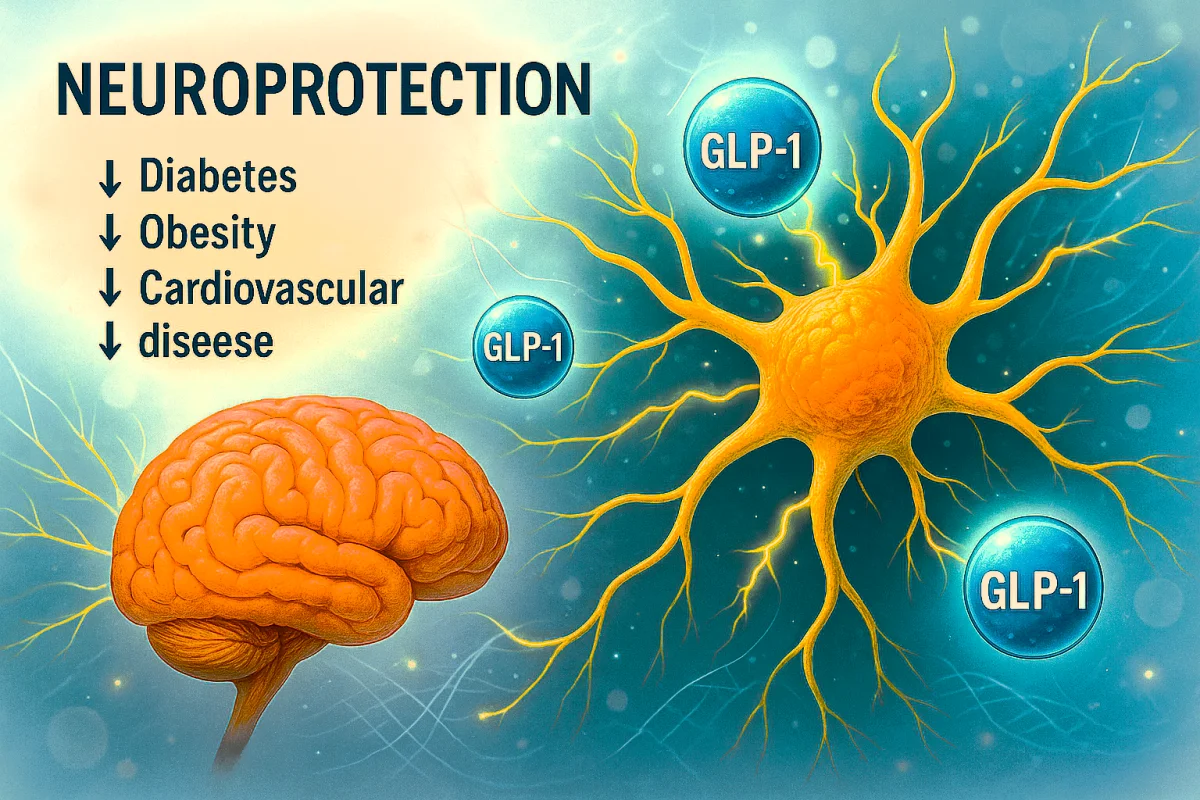The Impact of GLP-1 on Neurodegenerative Diseases: Medical Progress and Ethical Considerations
GLP-1 agonists have recently gained significant attention in the medical field. Originally developed for diabetes management and later widely adopted for obesity treatment, new research suggests that GLP-1 medications may hold great potential in the prevention and treatment of neurodegenerative diseases such as Alzheimer’s and Parkinson’s. This progress opens new horizons in medicine but also raises important ethical questions.

The Biological Mechanism of GLP-1
GLP-1 is a hormone that regulates glucose metabolism and insulin secretion. In drug form, synthetic GLP-1 stimulates receptors, aiding not only in blood sugar control but also in influencing brain function. Studies have shown that GLP-1 agonists can protect neurons from stress and inflammatory processes.
Scientific Progress
Over the past decade, clinical research has demonstrated that GLP-1 medications reduce neurodegenerative processes in animal models. For example, in Alzheimer’s models, these drugs lowered the accumulation of beta-amyloid, a key factor in brain cell damage. In Parkinson’s models, they showed protection of dopaminergic neurons, helping to slow disease progression.
Clinical Perspective
Early human trials suggest that GLP-1 drugs may reduce cognitive decline and improve overall neurological function. However, larger and more comprehensive studies are still needed to confirm their effectiveness in neurodegenerative diseases. By 2025, results from new clinical trials are expected, potentially shaping the future of medicine in this field.
Ethical Considerations
The use of GLP-1 raises significant ethical concerns. Will these treatments be fairly accessible? Could they become a privilege only for the wealthy? Additionally, how safe are they for long-term use in neurodegenerative conditions that may require years of treatment? Clear regulations and ethical frameworks are essential to prevent misuse and ensure fairness.
Economic and Social Impact
If GLP-1 medications prove effective against neurodegenerative diseases, the impact would be not only medical but also socioeconomic. Such diseases cost the global healthcare system billions annually. An effective treatment could reduce the burden on healthcare systems and dramatically improve the quality of life for millions of people.
Future Outlook
GLP-1 agonists are moving beyond their traditional roles in diabetes and obesity treatment. Their potential in neurodegenerative diseases could mark the beginning of a new era in medicine. Yet, true progress will depend on the collaboration of science, ethics, and policy to ensure safe and equitable access.
Conclusion
GLP-1 therapies may become one of the most significant breakthroughs in the treatment of neurodegenerative diseases. While many questions remain unanswered, current progress is highly promising. The medical community stands at the threshold of a new era, where GLP-1 could redefine standards in neurological care.
✍ Article Author
- Registered: 26 July 2025, 15:34




 Silent Cat 🐾
Silent Cat 🐾